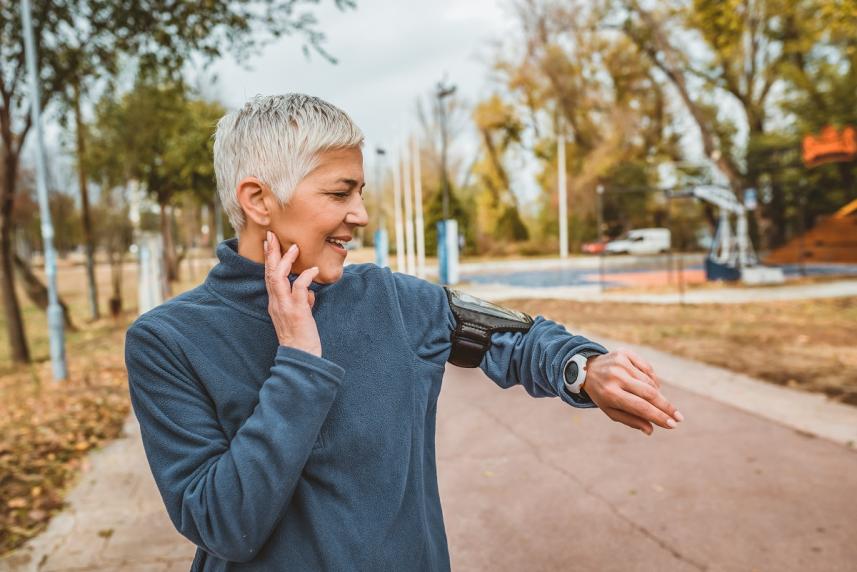The surprising way to measure longevity
Why your resting heart rate matters

New research has found that your basal heart rate, also known as your resting heart rate (RHR), can be an indication of how long you’ll live. Whether or not you smoke, are in prime marathon shape, or are overweight, your RHR influences your life expectancy.
"There is more and more evidence that points to a relationship between resting heart rate and longevity. The association has been shown across different species and in humans," says Magnus Thorsten Jensen, M.D. Dr. Jensen's team of researchers from the Copenhagen University Hospital in Denmark found that an elevated RHR correlated with a high risk of death, regardless of physical fitness and other major cardiovascular risk factors. While RHR has long been known to affect mortality, the key finding in this study is that an elevated RHR is important despite other health factors.
"If you have two people who have exactly the same age, BMI, physical fitness, etc. but one person has a higher resting heart rate, the person with the highest heart rate is more likely to have a shorter life expectancy," Dr. Jensen says. This isn't, of course, a free pass to smoke if you have a low RHR. It simply means that despite other risk factors, your RHR is important.
What is RHR?
Your RHR is your number of heartbeats per minute (BPM) while you are at rest. Consider moments when you're exercising or frightened—your heart rate elevates. That's not your RHR. Instead, your RHR is the base rate at which your heart beats and pumps blood through your body, like when you're sleeping or sitting down. Finding your RHR is simple: Count your heartbeats for 15 seconds and multiply that number by four. To take your own heart rate, use your pointer and middle finger to feel your pulse on one side of your neck, just where it meets your jaw.
Depending on size, weight, age, and gender, adult RHR can vary from 60 to 100 beats per minute. "Many conditions are known to affect heart rate, for instance diabetes, lung disease, and conditions affecting metabolism," Dr. Jensen says. Your RHR is ultimately affected by efficiency. The more efficient your heart is in getting blood to your extremities, and the stronger your heart is, the lower your RHR should be. Which means that your RHR will be related to your physical fitness. "The higher the resting heart rate, the more likely that person is to have a shorter life expectancy," he says.
What is surprising about the study findings is that among participants who have the same level of physical fitness, the higher RHR participant had a greater risk of death. The reason? Your heart is a muscle, and eventually it will wear out. The slower it beats, the longer it will hold out, Dr. Jensen says.
"It appears that every animal has a certain number of heartbeats per life. For example, a mouse has a resting heart rate of about 600 BPM and lives for a few years, whereas a Galapagos tortoise has a resting heart rate of around 6 BPM and lives for more than 150 years," Jensen says.
Although his study was limited to nearly 3,000 men, Dr. Jensen says that from past research there is no reason why these findings wouldn’t be relevant to women.
Change Your RHR
Your RHR can safely fall in a range between 60 and 100, though to find the right RHR for you, meet with your doctor.
"RHR is a very fundamental physiological parameter. It is very easy to measure and it is a very good ‘window’ into your health," Dr. Jensen says. But if you find that you have a higher RHR than you would like, there are a few things you can do. Primarily, it means taking a hard look at your habits and increasing or starting an exercise routine. If you are worried, it is always a good idea to consult your physician to come up with a plan to lower your RHR.
"Physical activity can lower resting heart rate. Although heart rate increases during physical activity, RHR decreases during rest when you are physically active," Dr. Jensen says. Athletes typically have the lowest heart rates because they have trained to optimize their athletic performance, which has also trained their hearts to be as efficient as possible. So borrow a trick from your favorite pro and use your RHR as a motivation to start a healthier, more wholesome lifestyle.


